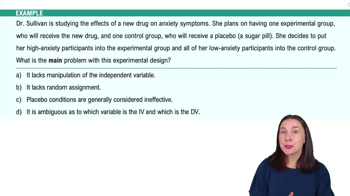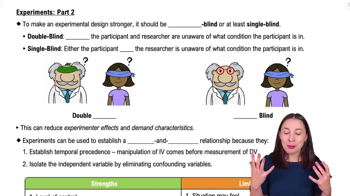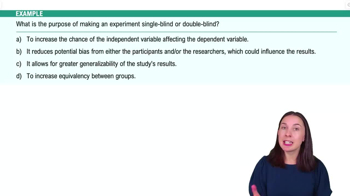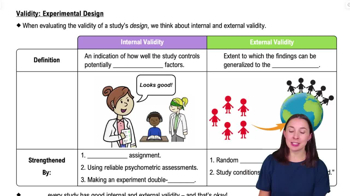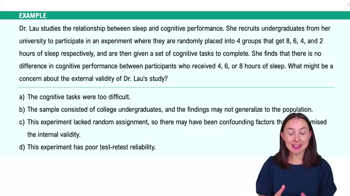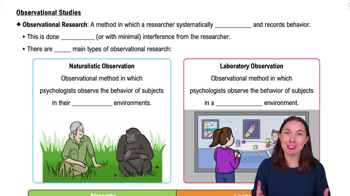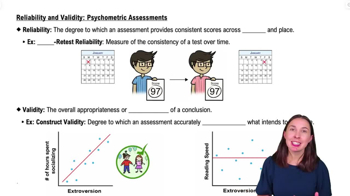Table of contents
- 1. Introduction to Psychology1h 43m
- 2. Psychology Research2h 20m
- 3. Biological Psychology2h 41m
- 4. Sensation and Perception28m
- 5. Consciousness and Sleep32m
- 6. Learning41m
- 7. Memory34m
- 8. Cognition37m
- 9. Emotion and Motivation35m
- 10. Developmental Psychology33m
- 11. Personality48m
- 12. Social Psychology41m
- 13. Stress and Health41m
- 14. Psychological Disorders44m
- 15. Treatment47m
2. Psychology Research
Intro to Research Methods
Struggling with Psychology?
Join thousands of students who trust us to help them ace their exams!Watch the first videoMultiple Choice
Albert Bandura's social cognitive theory of personality is based on
A
anecdotal evidence.
B
extensive research, such as the Bobo doll experiments.
C
case studies of his clients.
D
his puzzle box studies.
 Verified step by step guidance
Verified step by step guidance1
Begin by understanding the core concept of Albert Bandura's social cognitive theory, which emphasizes the role of observational learning, imitation, and modeling in behavior development.
Recognize that Bandura's theory is supported by empirical evidence, particularly through his well-known Bobo doll experiments, which demonstrated how children learn and imitate behaviors observed in others.
Consider the significance of extensive research in validating psychological theories. Bandura's experiments provided concrete data on how social behaviors can be acquired through observation, which is a key component of his theory.
Differentiate between anecdotal evidence, case studies, and empirical research. Anecdotal evidence is based on personal accounts, while case studies involve in-depth analysis of individual cases. Empirical research, like Bandura's, involves systematic experimentation and observation.
Conclude that Bandura's social cognitive theory is primarily based on extensive research, particularly his Bobo doll experiments, rather than anecdotal evidence or case studies of clients.

 1:46m
1:46mWatch next
Master Roadmap of the Lesson with a bite sized video explanation from Hannah Gordils
Start learningRelated Videos
Related Practice










